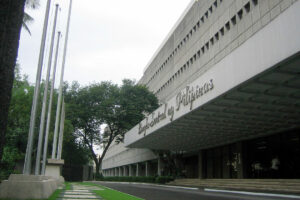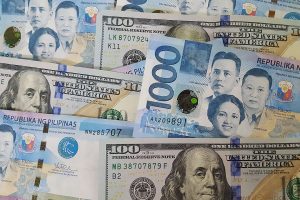As pump prices surge, DoE summons oil firms

By Marielle C. Lucenio
THE ENERGY department on Monday summoned oil companies to explain the higher-than-expected fuel price hike, and to ask them to consider staggering this week’s price increase.
“[Energy] Secretary (Alfonso G.) Cusi met with the oil companies after some of them have announced their price advisories,” DoE Oil Industry Management Bureau (OIMB) Director Rino E. Abad said in a Viber call.
However, Mr. Abad said oil firms decided against staggering the price increase.
On Monday morning, Mr. Cusi said the price increase per liter for diesel should be less than P12 and less than P7 for gasoline.
Pump prices were expected to increase for an 11th straight week on Tuesday. Some fuel retailers announced gasoline and diesel prices will increase by P7.10 and P13.15 per liter, respectively. The price of kerosene will go up by P10.50 per liter.
“The oil companies are deregulated. It is within their discretion, so we appealed to them. In the end, all we can do is wait and verify their decision,” Mr. Abad said.
Since the start of the year, gasoline, diesel, and kerosene prices per liter have risen by P13.25, P17.50, and P14.40, respectively.
Energy Undersecretary Gerardo D. Erguiza, Jr. said during a Senate hearing that local gasoline and diesel prices are expected to soar to as much as P86.72 per liter and P81.10 per liter, respectively, if Dubai crude hits $140 per barrel.
He said the price of kerosene is projected to reach P80.50 per liter, while liquefied petroleum gas (LPG) is expected to hit P119.53 per kilogram if the international price of crude oil continues to surge.
Dubai crude oil price is at $113.35 on Monday, according to Bloomberg.
“The DoE has been strictly monitoring the sufficiency of supply, the quality of what’s being sold in the market, and sees to it that there is no short selling,” Mr. Erguiza said, adding that there are no supply issues.
Meanwhile, the Department of Energy (DoE) reiterated its call for Congress to amend the oil deregulation law and the Tax Reform for Acceleration and Inclusion (TRAIN) Law, in order to address the elevated oil prices.
At the same hearing, oil companies thumbed down the DoE’s proposals to increase the minimum inventory requirement (MIR), unbundling of pump prices, and to give the government the power to regulate prices.
During the Senate hearing, Petron Corp. Assistant Vice-President for Corporate Affairs Mia S. delos Reyes said the company doesn’t see the immediate need to increase the MIR to 30 days or more.
Ms. Delos Reyes said there are several factors like the volatility of international prices before they can consider increasing the inventory.
“We don’t really think the situation will persist for a long time, if that’s the case then better, but [one of our concerns is that] what if we consider buying now [when prices are high], then prices will drop dramatically?” she said, adding that Petron already has a 30-day inventory in place.
Pilipinas Shell Petroleum Corp. Advocacy Manager Paulo B. Gavino said there is no need to increase the MIR as the company is confident of its current inventory of 32-day stock cover.
The DoE has been pushing to increase the MIR since last year, a measure to “ensure a level playing field” within the oil industry. It wants importers to maintain 30 days or as much as 40-60 days of inventory if possible.
Meanwhile, Independent Philippine Petroleum Companies Association (IPPCA) President Fernando L. Martinez said setting higher MIR is not realistic given that not all fuel depot locations have enough physical tank storage capacity to support 30-day inventory. He noted this will also add to the cost of domestic fuel.
Mr. Martinez also told the Senate committee there will be no benefit for unbundling prices as there are more relevant factors that cause local price distortions such as limits on the number of retail competitors, real estate cost, and delivery costs.
On the proposal for the government to regulate oil prices, he said this will just “bring chaos to the market,” citing the experience with Oil Price Stabilization Fund.
On the other hand, IPPCA agreed that the country should have a national strategic petroleum reserve as long as the government will fund and own the fuel stocks and to suspend the excise tax once Dubai crude oil reaches above $80 per barrel. — with inputs from Alyssa Nicole O. Tan




